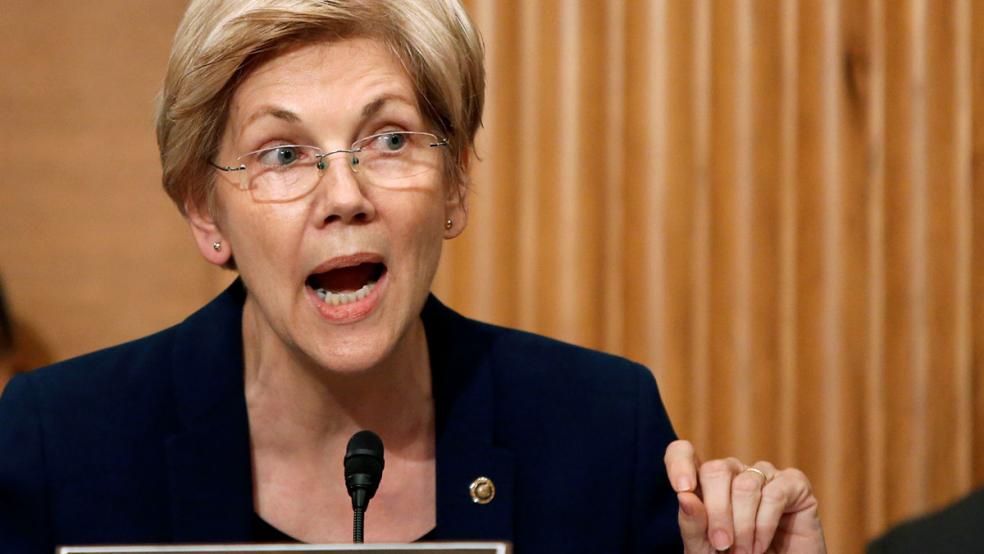One of the crucial unanswered questions hanging over the democratic debate on Medicare for All is how its proponents plan to pay for it. While Bernie Sanders has made it clear that he would raise taxes to fund the program as part of an effort to reduce costs overall for most people, Elizabeth Warren has famously refused to address the question directly. Is she too timid to address a difficult question – or wisely avoiding a potential minefield?
Either way, centrist Democrats have criticized Warren for her evasion of the question. “At least Bernie's being honest here and saying how he's going to pay for this and that taxes are going to go up,” Amy Klobuchar said at this week’s Democratic debate. “And I'm sorry, Elizabeth, but you have not said that, and I think we owe it to the American people to tell them where we're going to send the invoice.”
Joe Biden has criticized Warren along the same lines, warning voters that the cost of Warren’s health care plan, which he opposes as unaffordable, will come straight out of their paychecks. In this framing, voters have an easy choice between a shockingly expensive universal health care system that they’ll pay for with massive tax increases, or smaller reforms that will leave much of the current system in place and taxes roughly the same.
Some centrists applaud Klobuchar and Biden for what they see as their honesty, but critics charge that they are simply repeating Republican talking points. While Klobuchar has explicitly rejected that critique – “I’m tired of hearing, whenever I say these things, oh, it’s Republican talking points,” she said at the debate – New York magazine’s Eric Levitz says the problem is real. The portrayal of Medicare for All as wildly expensive, and the demonization of tax increases that would pay for it, undermines the Democratic agenda as a whole, Levitz wrote Thursday.
Levitz makes three related points to bolster the case for being more open about Medicare for All:
1) The much-cited $32 trillion cost of Medicare for All (on a 10-year basis) is basically what the country as a whole will spend on health care in any event – and in fact, it may be less. In other words, there’s nothing particularly expensive about Medicare for All, and the program is intended to reduce overall costs, not increase them, even as it covers more people.
2) In virtually every other developed country, some form of universal, publicly-funded health care produces better care at lower cost, and Medicare for All offers a path toward that goal in the U.S.
3) There is no practical difference between health care taxes and health care insurance premiums and out-of-pocket spending. Both are unavoidable for the great majority of people, and both come out of people’s paychecks.
The centrist framing deployed by Biden and Klobuchar ignores these basic insights, and plays into more typically Republican fears of large government programs and tax increases. “Equating support for middle-class families with opposition to increasing their tax rates is a conservative project,” Levitz says. “There is no reason for any Democratic candidate to be advancing it — no matter their position on single-payer.”
The situation is made worse, according to Levitz, by a media that treats private and public spending quite differently:
“Under the norms of mainstream political journalism, costs imposed on the American people by the private sector require no justification or defense; only costs imposed by the public sector do. If you are committed to abetting the meteoric rise of private health-insurance premiums, a debate moderator will not ask you to level with the American people about how much your approach to health-care policy will cost them. If you are committed to reducing overall health-care costs by expanding the public sector’s role in medical provision, you will be ritually scolded for the extraordinary (and extraordinarily decontextualized) fiscal price of your program.”
That political bias in the media, which both shapes and reflects popular opinion, may be one good reason for Democrats to be cagy when it comes to discussing the costs of major social programs like Medicare for All. Accordingly, it may make sense for even the most progressive Democrat to back more moderate reform plans for health care, including the creation of a public option alongside the existing system.
But even Democrats who reject Medicare for All should avoid following the Republican mode of attack that seeks to delegitimize both social spending and the taxes that fund it, Levitz argues: “A political discourse that treats taxation as presumptively suspect (even as it treats private rentierism as presumptively legitimate) will not be a favorable one for any Democratic president.”
Embracing a line of criticism that echoes the opposition’s positions will only damage Warren or Sanders politically and make it that much harder to govern should either win the White House. And it could hurt efforts to create more robust social programs in the future, should Democrats ever have the chance.




